#surak
Explore tagged Tumblr posts
Text
Humans are Vulcan catnip, I swear to Q.
Spock and Kirk: No need to explain. In any universe they are drawn together and Spock abandons any sense of rationality if his Captain is hurt or just looks at him sweetly.
Sarek and Amanda: Admitted he married Amanda for love, not logic. Then made Spock.
Solkar and Zefram: Ten seconds off the spaceship and Solkar decides to do the diplomatic thing and make out with this human.
Surak and Archer: Archer was given Surak's katra without his knowledge and when T'Pau attempted to extract him Surak clung to the mental doorframe because he was safer here and he liked it better here, despite the logic of being housed in a nice logical Vulcan mind instead.
Solok and Sisko: Solok abandoned all pretense of logic when he won a wrestling match with a young Sisko and became so obsessed with him that he taught an entire Vulcan Starfleet crew how to play baseball just so he could beat Sisko again.
T'Pol and Trip: T'Pol became so attached to the Enterprise crew that she gave up her military career with Vulcan to continue to serve as First Officer, and to keep close with her boyfriend.
Tuvok and Janeway: Tuvok is fiercely loyal to Janeway, to the point that he will go along with her illogical plans just because he has such great faith in her.
Soval and Forrest: Soval respected Forrest but when Forrest died saving Soval it uprooted what loyalty he had left to the Vulcan High Command (who he then realised was corrupt) and he went rogue trying to save Vulcan from itself. (Really watch for the nose flare when he talks to Archer next to Forrest's casket, that Vulcan is pissed.)
#star trek#spock#james t kirk#spirk#sarek#amanda grayson#solkar#zefram cochrane#surak#jonathan archer#captain solok#benjamin sisko#t'pol#trip tucker#tuvok#kathryn janeway
765 notes
·
View notes
Text


My Top 25 Costumes from Star Trek : The Original Series
13. Surak's Pedagogical Robes

#ignore abraham lincoln#star trek tos#tos#star trek costumes#surak#the savage curtain#william were theiss#tos25*#originalposts*
369 notes
·
View notes
Text

One Pre-Surak Spock sketch coming right up also as practice with my new tablet. It feels so nice to be able to use ClipStudio just like with my laptop 💜✨
#star trek#st art#s'chn t'gai spock#pre surak spock#pre-surak spock#vulcan lore#vulcan headcanons#purple enma headcanons#Vulcan#pre-Reform#vulcan braiding#jewelry#fanart#sketch#digital art#practice
100 notes
·
View notes
Text
yo surak kinda fine
#the savage curtain is certainly an episode#im also moderately tipsy#kirk and spock are crushing on lincoln and surak so hard#star trek tos#spock#jim kirk
34 notes
·
View notes
Text

Surak didn't know how he felt about Nirmala.
She had come into his life like any other animal to The Tree of Life: seeking for help and healing from the ruler of the Night Pride, in this case, his own mother, Janna. Surak had noticed how beautiful she was, and, as the flirt he was —not like his brother, Sãhasí—, he had tried to approach the new face in the lands.
He noticed, though, that she was uncomfortable with his advances, so he pulled off inmediately. That didn't stop his curiosity about Nirmala. Surak had overheard the lioness' talks with his mother, about the lands she has visited in her previous nomadic pride. The young lion, who had never left his home, was excited about the stories.
Little by little he got closer to the stranger. Nirmala wasn't sure about him at first but Surak was charming and didn't seem to be malicious, he was childish even.
They became best friends.
And when Nirmala, comfortable of having someone who wouldn't purse a relationship with her, finally confided the trauma she had lived on before coming to The Tree, Surak bow himself to protect her and never leave her unless she told him so. She laughed, telling him that once he found a mate, he would leave.
The day came when a new lioness came and accepted Surak's charms. The male was giddly and told Nirmala everything about this new female. His friend only laughed at him, saying she was happy for him.
Which is why he got surprised when, after he spent all the night talking with his best friend, his "mate" told him that he needed to choose between her and Nirmala and leave the Tree.
Surak was offended. How dare her? Nirmala was a must! He wouldn't leave her, and he wouldn't change his mind. Not even after the lioness slapped him and called him a nasty lion. Not even after Nirmala begged him to fix his relationship with the lioness, Surak stayed as long as Nirmala wanted him by her side.
And the seasons passed. And other females came. But since non accepted that Surak had Nirmala as his priority, nothing changed.
Surak didn't know how he felt about Nirmala. He knew it wasn't love. At least, not the one he has seen his brother had with his wife. Nor his mother with his father.
Surak didn't know how he felt about Nirmala. It's wasn't love. It was different.
And he was happy with that.
----------------
Happy Aromantic Awareness week! I have been wanting to explain how Nirmala and Surak work in my canon, since I personally don't see them as a couple so here is my explanation: Surak is heterosexual aromantic! Nirmala is straight but has chosen the cellibate life. They are each other's most importan lions in their lives and wouldn't change it for anything in the world.
#the lion king#tlk#tlk fanart#nirmala#surak#the lion guard#aromantic#fanart#illustration#lion#artists on tumblr#my art#pictures arts
126 notes
·
View notes
Text
Vulcan counterculture and fandom store called Hot T’Pic
#star trek#star trek tos#spock#Vulcan#vulcans#hot t’pic#hot topic#it’s where all the teenaged Vulcans get their Surak funkos and T’Pau band shirts#the last time I was in a hot topic was years ago when a student who worked there gave me a gift certificate as a semester end gift#and she really wanted me to use it#T’Pau#Surak#shitposts
519 notes
·
View notes
Text


This is crazy. Does it mean that after the katra ceremony, Spock (and perhaps McCoy too) were regarded as semi-mythical figures in Vulcan?? Like some sort of Surak reincarnation?? Crazy.
But this makes Sarek's insistence that Spock must have stored his katra somewhere, and the trip to Genesis afterwards, even more difficult to understand. Everything points out to to the fal-tor-pan being an extremely rare ceremony (in fact, the film says so clearly). So why were they so certain of what they had to do? It's like hoping for someone to resurrect at the third day like Jesus, just because. 🤔
I guess the film's inconsistencies are due to the katra transfer being just included at late stages of the script, but still...
Source: Memory Alpha. Article on "Surak".
111 notes
·
View notes
Text

i was just bored okay??? i just going to sleep
#shitpost#sh!tpost#the lion guard#lion guard#tlg#bunga#makini#fuli#ono#baliyo#anga#kion#rani#surak#beshte#nirmala#the night pride#meme#alignment chart#alignment meme#the lion king#lion king#tlk#i also would make this meme with some tlk ocs#i almost all of these lmfao
56 notes
·
View notes
Text
father of logic

46 notes
·
View notes
Text
I will fucking kill myself i cant find the goddamn "What is, is" in vulcan anywhere omg
#DOES ANYONE KNOW THIS PLEASE IM ON MY LNEES?????#star trek#tos#spock#vulcans#surak#somebody help me
26 notes
·
View notes
Text
You know what I’m still mad abt?
They spend so much of TOS hyping up Surak. Idk why but i expected him to look cool and wizened. Like, big, neat, salt and pepper beard a la Marx and Greek Philosophers
Why was he just some twink
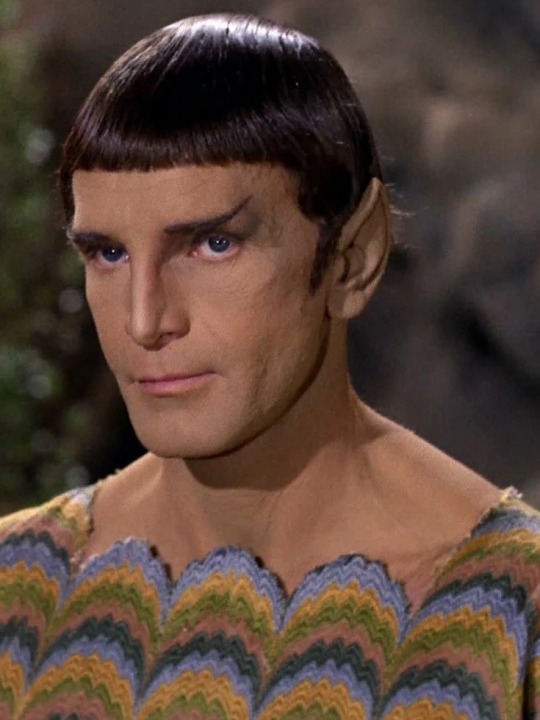
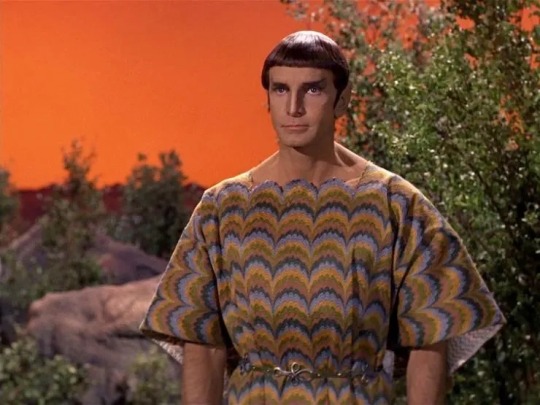
#that’s just some guy#I doubt he would have the charismatic sway to cause a whole cultural revolution#what the hell#surak#star trek#star trek tos#q
245 notes
·
View notes
Text
So I'm reading Spock's World by @dduane and we're getting a Surak origin story.
Apparently Surak was just a random boring guy who worked in finance and then he got really sad watching the news because of wars and got lost in the desert and basically radicalized himself.
When I'm sad watching the news I just get drunk. Maybe that's the problem.

#he's just like me fr#rip Surak you would have loved Tumblr#star trek#vulcan#diane duane#spock's world#spock#ambassador sarek#soval#surak#vulcan culture
40 notes
·
View notes
Text

when Vulcan Jesus would rather stay in the dilf's subconscious hes been squatting in for the past 4 days
#hes an old queen who doesnt wanna move#star trek#star trek enterprise#star trek ent#johnathan archer#t'pau#surak
20 notes
·
View notes
Text
C'Thia, Surakian Philosophy, and Vulcan Polytheism
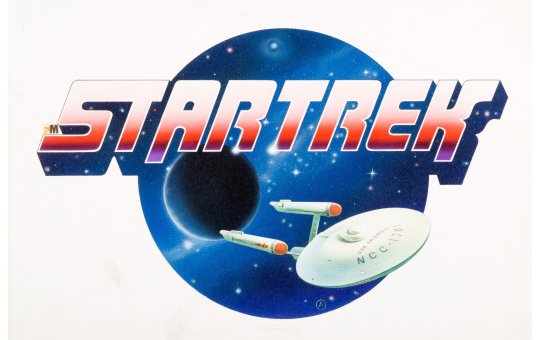
While most would consider Surak to merely be a philosopher and reformer, thereby removing any hint of religion from the discussion and forming instead an idea of both Surak and his philosophy as being, at best, atheistic or agnostic, and at worst, being anti-theistic, I have to strongly disagree with this assessment. Especially when it's used as proof to claim that modern, post-Awakening Vulcans are also at best atheistic or agnostic, and at worst anti-theistic. I believe this comes about due to a commonly held misconception that religion in and of itself is anathema to science, to progress, to intelligence, and therefore, to logic itself. This is, of course, a blatantly false binary and we are shown over and over again in canon that while Vulcans place a great importance on science, education, intellect, and logic, they are also a very spiritual people. Most of the important locations on Vulcan that we see in canon tend to be temples, sacred mountains, or holy ruins. Leaders tend to be high priestesses. Meditation is almost universal for Vulcans, and while it can be argued that it is very much a mental discipline as well, meditation was birthed, and continues to find its roots, in spirituality, and at its heart, is a spiritual discipline. Meditation, after all, was not invented by scientists, but by monks.
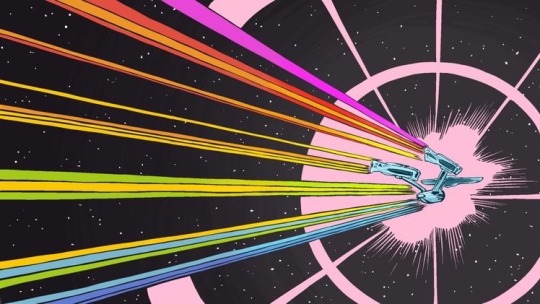
In the episode of the Animated Series, "Yesteryear", Spock tells Sarek that he is merely passing through ShiKahr on his way to the family shrine to "honor our gods". This one line proves to me that, at least for Spock, there is no incongruence between his modern Surakian belief and practice of C'thia (commonly this is translated as just "logic" but a more accurate Vulcan translation is "reality-truth") with that of traditional Vulcan polytheistic religious practice. One can assume that this is not, however, unique only to Spock, seeing as shrines require some semi-regular maintenance and he very rarely visits his father's homestead so it is unlikely that Spock alone is the one who maintains them. Sarek also is unsurprised by Spock's actions, which suggests a kind of normalcy to it. One does not get the impression that Spock is doing something rebellious by performing religious rites to Deities.
Likewise, in the Voyager episode, "Hunters", Tuvok receives a letter from his wife. In it, she tells him that she and their children have asked the priests at the Temple of Amonak to say prayers for Tuvok's safe return from the Delta Quadrant. Prayer requires something to which a person prays to and the assumption here is, again, the existence of Vulcan Deities as well as devotional practices targeted toward them existing even until the time of Voyager. While one of the purposes of prayer has to do with the person praying, as in, a benefit to prayer is that it gives the praying person something to do when they may not be able to do much else about a situation, and therefore T'Pel and her and Tuvok's children may be using it as a kind of meditative practice meant to give their grief and worry about Tuvok's safety somewhere to go that may then help them control it, I believe even this would still imply belief in the existence of Deities. One could meditate without the use of prayer involved but that was not the course of action that T'Pel took. She specifically made a trek to a sacred temple with the intention of saying prayers for Tuvok and told him about it, again, just as with Spock and Sarek, showing that there is something normalized about the action. Belief in the Gods and religious practice utilizing them is, therefore, not something performed only in the dark or in secret.
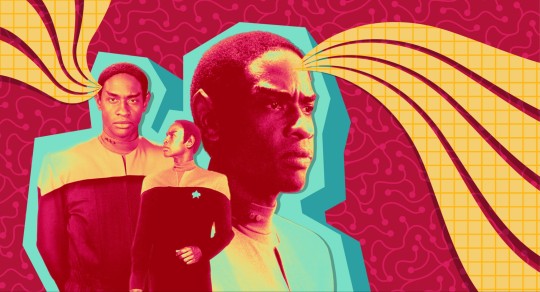
So, Vulcan polytheistic spiritual practice has continued past the Awakening and into the Vulcan Reformation. Is it the same as what it looked like to pre-Reform Vulcans? What's different? I wish we got more glimpses of Vulcan religion beyond mostly backdrop (while we are explicitly shown rituals and ritual locations in episodes like "Amok Time", "the Gambit" and many places in Enterprise, and in movies like "the Motion Picture" and "Search for Spock", very rarely do we see explanations for what the Vulcan lay people and priest(ess)es are doing and why) but that simply means that I instead get to make things up. Which is my favorite thing to do. So while the entirety of this post is built on a core of canon and information from Memory Alpha and Beta, as well as the Vulcan Language Database, most of what follows is my own musings and thoughts.
Firstly, in my research I've established that there seems to be two major pantheons within Vulcan spirituality, the Ka-ta-pak, or Inner Chorus, and the grouping I've named Ek-tam'a-ta, which is where I've placed every other named Deity not belonging to the Inner Chorus. The Inner Chorus, being made up of Deities that seem much more akin to emotional archetypes, become a much more thorny topic to consider when it comes to reconciling the worship, or, at the very least, acknowledgement of these Beings with the rigorous control of emotions that is to be expected within the Surakian cult of C'thia. As such, they are what I plan to focus on here.
The Inner Chorus is made up of the following Deities: Tel-Alep and Alep-Tel, Kir-Alep and Alep-Kir, Valdena and Dena-Vel, Kal-ap-Ton and Tyr-al-Tep, and Ket-Cheleb. Other than the last Deity, each is a part of a pairing where one represents the lighter, more acceptable form of a suite of emotions, whereas the other is the darker, shadow side. It's a concept similar to reading Tarot cards, where a card's reversal typically points to the darker reading of the themes the card communicates when right side up. For example, Valdena is famously the love Goddess and rules over emotions such as joy, beauty, fullness, pleasure, etc, whereas Dena-Vel, her shadow twin, rules over the darker side of love, namely concepts like possessiveness, covetousness, envy, domination, etc. What I would posit as probably one of the fairly radical reforms within Surakian thought, is the idea that C'thia is meant to subjugate and control both sides of what the Inner Chorus represents, not just the shadow side.
Isn't it illogical, however, to worship archetypal manifestations of emotions that one is trying to suppress? This was the big question that came out of my exploration of Vulcan Deities and led me to conclude that there is a difference between how Vulcans interact with Ek-tam'a-ta Deities vs the Ka-ta-pak, wherein the former is treated much more like how one stereotypically interacts with Gods, ie with reverence, worship, offerings, prayers, etc, as well as an understanding of the Deities being Beings outside of the mind in their own rights, while the latter is much more localized and symbolic. The Ka-ta-pak are not so much outward Beings, as they are emotional symbols and touchstones, metaphors to be focused on in meditation rather than as Gods to be worshipped.
Even the name, the Inner Chorus, suggests this kind of community of emotional beings, of aspects of the interior Vulcan mind, and furthermore, points to a need for a harmony amongst them. It is my thought that the Ka-ta-pak are less like sentient beings with personhood and more like the Platonic ideal of the emotion they represent. They are the emotion in its most perfected form and by experiencing this, experiencing the presence of this being, this outward-focused inner spirit, in the relative safety of meditation, the average Vulcan is able to meet that emotion and learn how it manifests within their own body and mind. In this meeting, they are able to name the emotion, learn it, experience it, and understand how to master it so that when they experience it outside of meditation, they need not be conquered by it and brought into chaos but instead are able to hold to order and logic in the face of it.
In the Enterprise episode, "Fusion", we are shown that Vulcans don't typically dream and that meditation has usurped the role that dreaming would usually take in the Vulcan psyche. It follows, therefore, that they process the emotional stimuli of the day through meditation and that symbolism, which is an important language for the sub-conscious and the language that dreams are written in, would probably play a role in that. Thus, the use of the Inner Chorus as a symbol of focus, as the emotional tangle that one seeks, through meditation, to sort out and bring order to, makes sense. I believe that this constitutes some of the work of t'san s'at, or the intellectual deconstruction of emotions that Surak preached. T'san s'at is the study of one's own emotions, and the effects these emotions have over one's actions. The peace and tranquility that lies at the end of t'san s'at is the goal of every Surakian Vulcan, and is a lifelong aspiration. It is through working with the Ka-ta-pak with this goal in mind that brings these ideas together.
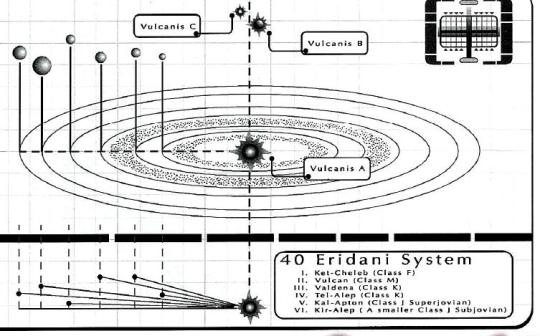
Another idea I found interesting about the Ka-ta-pak is that the names of the Deities match the names of the other planets within the Vulcan solar system (according to the Memory Beta article that I believe is based on a Trek inspired ttrpg). A solar system, with its constant routine of stable orbits and cycles, would be an obvious metaphor for the idea of Order. The Inner Chorus strikes me, then, as the microcosm within the Vulcan mind/spirit as connected with the macrocosm of the living universe around them. It is the connection between the Vulcan mental and katric interior space and the exterior physical space. Just as the solar system is in constant harmony, subjugated to the laws of gravity, order, and simply the natural mechanisms of the living universe, one's own interior system should likewise be ordered. That it is called an inner chorus is very telling to me, since when choruses are working correctly, they are making music in harmony, just as the broader cosmos makes the music of the spheres, which is the sound of mathematics purified. It is the goal of every Surakian Vulcan to harmonize their inner chorus (part of which involves meditating on the form of the Inner Chorus) with the music of the macrocosm. In this, I believe the mind, or the reasoning capacity, represents a kind of conductor, who directs the inner chorus of emotions to properly allow for the production of music. The music produced by this harmony is C'thia, which is the same substance that keeps the planets in their orbits and the universe ticking onward.
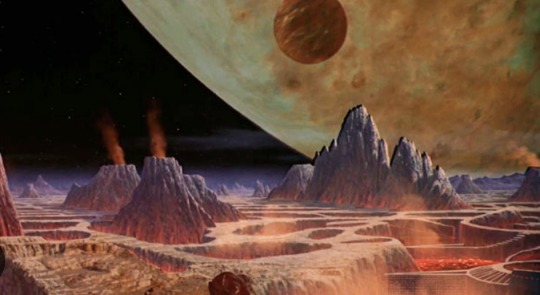
This post is getting a bit long but there's one last thing I want to talk about and that would be Surak himself. As mentioned earlier, there is a common misconception I've seen that, again, makes Surak some kind of radical atheist philosopher who, in stomping out the violence and ignorance that marked the culture of his planet, must also have gotten rid of its religion, not just superstition or conservativism but religion more generally. Again, this comes more from the mistaken belief that spirituality and science are necessarily at odds. But what we see of Surak doesn't actually support this erroneous belief. Instead, one of the things that Surak is famous for is his pilgrimage. A pilgrimage is a religious journey undertaken for religious purposes. Surak set out to visit many religious orders and temples, before traipsing into the wilderness in places like Vulcan's Forge and Mount Seleya, to learn from and connect with the various priest(ess)es, as well as to connect in solitude with his own mind. C'thia is always shown as a revelation. Surak perceives it for the first time and discerns its meaning while on pilgrimage, while in meditation, while studying spiritual truths. He discovers it, not in a laboratory, but in deep contemplation on a mountain peak. Thus, Surak strikes me as much more akin to a Hindu yogi or an enlightened New Age seeker than he does a Richard Dawkins type. He doesn't dismiss the spiritual lessons he learns from visiting the other religious orders but instead incorporates them into his new cult. I think it's this incorporation of c'thia with traditional polytheism within Surak's own spirituality that allows for modern Vulcans to do the same.
In conclusion, anyone who claims that the post-Reform Vulcans shown in canon are atheists have not been paying attention to the actual canon, first of all, and secondly, are doing nothing more than showing their bias toward the science vs religion binary. I think the Vulcans are a little too smart to fall for this dichotomy, and they are certainly aware of the need for a philosophy to be an open one, if it's to be sustainable at all. I think having access to the neverending mystery of space, peopled as it is with many different kinds of beings, has allowed the Vulcans to be open-minded toward religion and the existence of Gods and other numinous beings. After all, they fully accept the existence of katra and thus, souls, spirits, and the idea of beings existing without bodies. It is not an illogical leap to suppose that since animating spirits (ie souls that are housed by and animate a body) exist, other kinds might also, including Deities. And since Vulcans possess a psionic system, capable of the extrasensory perceptions involved in their version(s) of telepathy, they may be able to perceive these spirits telepathically, even when psi-null folks may not be able to.
So, I don't think Vulcan polytheism is relegated to some point in the planet's distant past but instead continues, alive and well, into the post-Awakening world.
#star trek#pop culture paganism#vulcan polytheism#vulcan religon#vulcan spirituality#vulcan culture#vulcan#vulcan mythology#surak#surakian philosophy#c'thia
134 notes
·
View notes
Text
The intrusive thoughts won. I made a thing.

This is how I deal with my religious trauma.
#i was never a Catholic#but being mexican i lived in the shadow of The Church all my life#catholic#Catholicism#rosary#IDIC#infinite Diversity in infinite combination#vulcan#logic#surak
204 notes
·
View notes
Text
The Surak we see in The Savage Curtain is a manifestation of Spock's idea of Surak, so if the first thing he does is reprimand Spock for showing emotion that's because that is exactly what Spock would expect. That the greatest vulcan who ever lived, father of all we now hold true and his personal role model would be disappointed in him
#valiant effort of this episode to try to emulate the iconic Arena. failed effort but valiant nonetheless#the savage curtain#spock#star trek#tos#st: tos#surak#vulcans#he's also his grandpa so of course he would treat him like sarek#his i beg forgiveness. i will kill the image of surak with a stick for making him say that#trek meta#my meta#rotating Spock in my mind. business as usual
68 notes
·
View notes